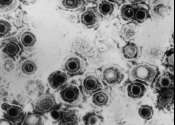Blindness gene discovered
The human genome is made up of 20,000 genes, all of which may cause disease. At present, 4,141 genes have been identified as being responsible for genetic abnormalities, leaving around 16,000 genes with unknown implication ...
Jul 23, 2018
0
15








